Here’s a list of Vegetables You Should Never Plant Together and Why to make sure you get the best quality harvest.
If you want to boost the productivity and flavor of your crops in the garden, then check out this list of Vegetables You Should Never Plant Together and Why.
Vegetables You Should Never Plant Together and Why
1. Peppers and Cabbage
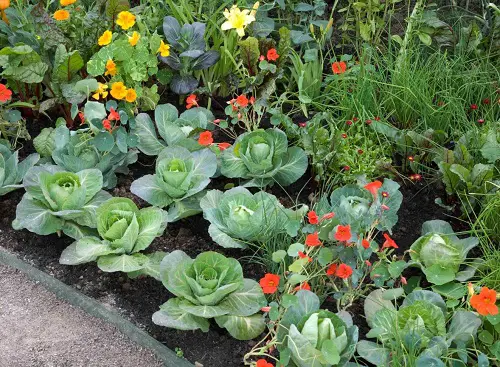
Vegetables in the brassica family, such as cabbage, broccoli, and kohlrabi, can impede the growth of nightshade family vegetables, including peppers – this is because brassica family vegetables produce a chemical called glucosinolate, which is harmful to nightshades.
The chemical breaks down into isothiocyanates which inhibit the growth of nightshade plants.
What to Plant with them?
Onions, tomatoes, and eggplant are suitable companion plants for peppers, while mint, cucumber, or lettuce make good companions for cabbage when planting.
2. Corn and Tomatoes
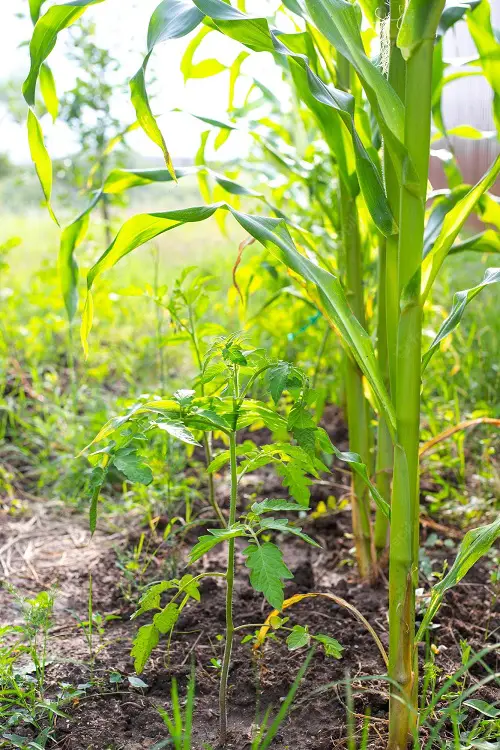
You should never grow corn and tomatoes together as both of these plants can be affected by late blight. Growing them together increases the risk of this disease spreading to both. But that’s not all.
Corn is a heavy feeder and needs a lot of nutrients, which will mean less nutrients for the tomatoes, affecting their health. Tomatoes may also use the corn plant for support and become tall – getting damaged by strong winds.
What to Plant with them?
For better tomato flavors, plant them with basil or chives, never with dill. Carrots are also a good choice.
Find the Best Way to Grow Tomatoes here
3. Potatoes and Zucchini
Both of these are nightshade vegetables and are affected by the same diseases. If you grow them together, you will have lower yields and poor quality produce as they have different growing needs – so you can only cater to one if they are planted together, and the other one will suffer. They also compete for space in the garden.
What to Plant with them?
Zucchini plants can thrive when planted with corn, as the cornstalks provide a support structure for the vines. It also pairs well with melons and beans as companion plants.
When planting potatoes, it is recommended to choose a location near horseradish, beans, or herbs such as basil and thyme for optimal growth.
4. Sage and Cucumbers
Growing sage and cucumbers together is a bad idea because sage is an aggressive grower and will take over the cucumber plants. Sage can crowd these plants and also make them taste bitter.
What to Plant with them?
You can go with dill, peas, and radishes if you’re looking for companion plants for cucumbers. On the other hand, rosemary, cabbage, and carrots are best to grow with sage.
5. Pumpkins and Summer Squash
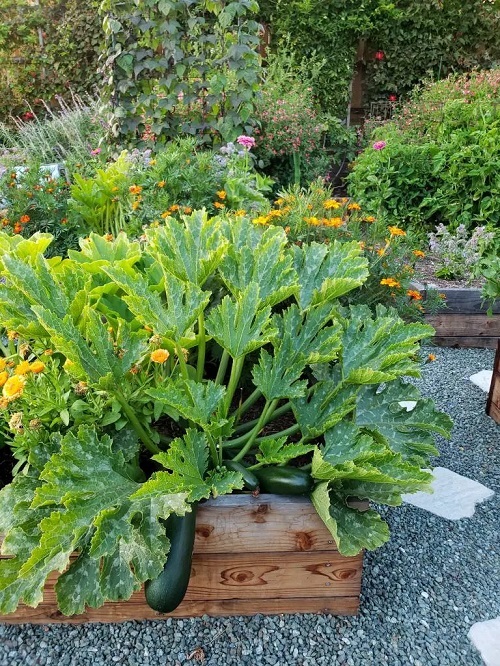
Pumpkins and summer squash are both members of the Cucurbitaceae family, but this doesn’t mean they would grow well together.
Pumpkins need space to grow and sprawl and take longer than summer squashed to mature. You might also get hybrid plants due to cross-pollination and undesired fruits, so it’s best not to grow them together.
What to Plant with them?
Melons are good companions for pumpkins. So are radish and corn. If you want to grow summer squash, grow these with nasturtium flowers or herbs.
6. Carrots and Parsnips
These root vegetables both need full sun and moist soil. So growing them together seems like a good idea, right? WRONG! Carrots need loamy, permeable soil, which is different from parsnips, and thrive in heavier soils like clay. So you’ll have trouble growing them.
Parsnips also have long, deep roots, unlike the shallow roots of carrots, so the competing needs will lead to crowding. And your yield will be reduced.
What to Plant with them?
You can plant carrots near herbs like rosemary, sage, or chives. And for parsnips, choose tomatoes, peppers, onions, and garlic. To repel harmful insects, it is advisable to plant carrots alongside rosemary, sage, or chives.
Don’t miss out on the Best Indoor Vegetable Garden Ideas
7. Fennel and Eggplant
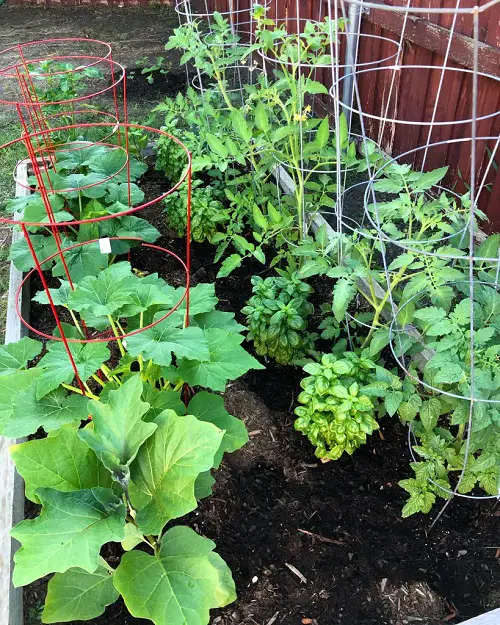
Fennel and eggplant have very different nutrient needs and have the potential to compete for nutrients in the soil.
When grown together – it can lead to nutrition stress, and lead to reduced yields. Fennel also tends to attract certain pests and diseases that could affect the growth of the eggplant, which could lead to further problems.
What to Plant with them?
Eggplants require soil that is rich in nitrogen, making it suitable to plant them with beans, especially bush beans that help ward off pests that can damage eggplants.
While fennel has few companion plants in the garden, it can be grown in a separate patch or raised bed away from your vegetables and herbs.
8. Beans and Onions
Beans and onions are both heavy feeders and require a lot of nutrients from the soil to grow properly. Growing them together can lead to competition for nutrients, leaving both plants unable to reach their full potential.
In addition, both are susceptible to the same pests and diseases, so it is best to keep them separate to avoid any further spread.
What to Plant with them?
Onions can thrive when planted with peppers, lettuce, and carrots. Beans, being nitrogen-fixing plants, make great companions for fast-growing plants such as corn and potatoes.
9. Asparagus and Broccoli
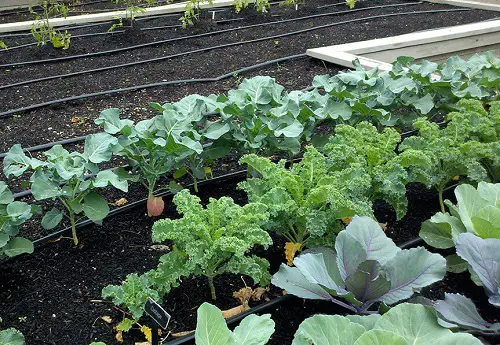
Growing asparagus and broccoli together can create competition for nutrients, water, and space. They require different soil pH levels and fertility levels, which can create an imbalance in the soil.
Broccoli is prone to many of the same diseases and pests that can affect asparagus, so growing them together can put both crops at risk of getting infected.
What to Plant with them
Broccoli can thrive when planted alongside aromatic herbs, radishes, spinach, and cucumbers. Asparagus, on the other hand, prefers to grow in its own space or with herbs such as dill, parsley, and basil.
10. Peas and Garlic
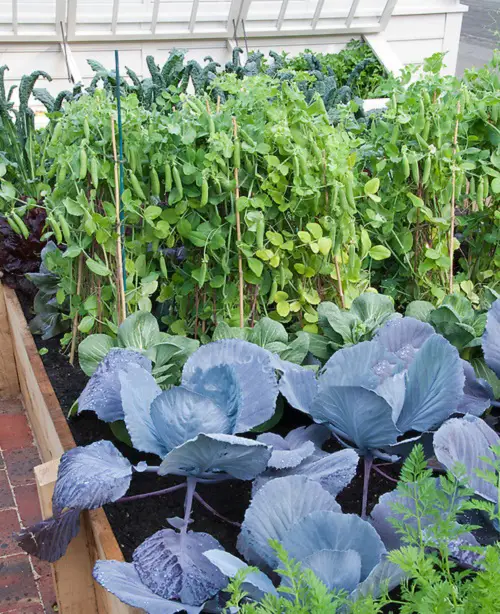
Pea plants and garlic have different soil and nutrient requirements – simple as that. So, if you plant them together, they will not grow properly.
Also, the strong odor of garlic keeps insects and birds away, so your peas will not get pollinated, and you’ll have a lower yield.
What to Plant with them
Garlic is a pest repellant and grows well with tomatoes, eggplants, and dill. Peas can be grown with beans, corn, and cucumbers.
11. Cucumbers and Aromatic Herbs
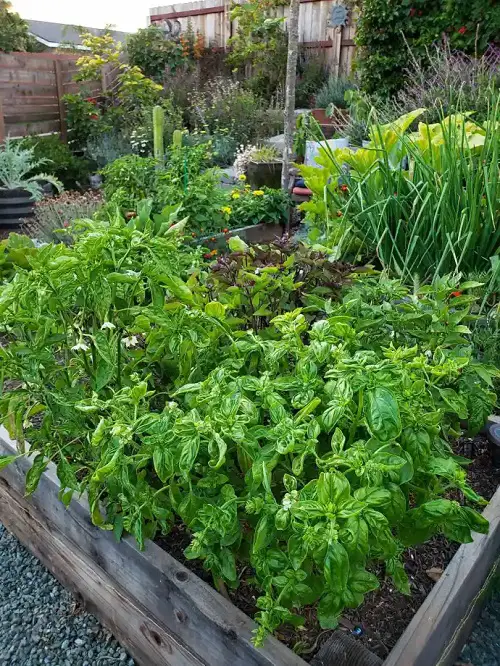
Growing cucumbers and aromatic herbs together can be problematic as the cucumbers can cause the herbs to become bitter and unpalatable.
Cucumbers can also attract pests, such as aphids or whiteflies, to the herbs, which can ruin their aromatic qualities.
What to Plant with them?
You can plant dill with cucumbers, as it improves their growth and flavor; it attracts beneficial insects like ladybugs and hoverflies. Basil, parsley, chives, and cilantro are also good companions of carrots.
12. Carrots and Dill
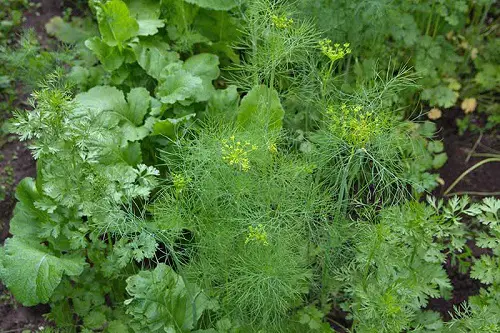
Carrots and dill are both members of the Apiaceae family, which is prone to disease and pest problems and growing them together increases the risk that these problems will spread from one plant to the other.
Additionally, dill is a tall plant and can shade out shorter carrots, reducing their potential yield.
What to Plant with them?
Dill and marigolds make a good companion planting combination as they can help repel pests like nematodes and whiteflies. Also, dill can attract beneficial insects like wasps and hoverflies, which can help control pests that damage broccoli heads.


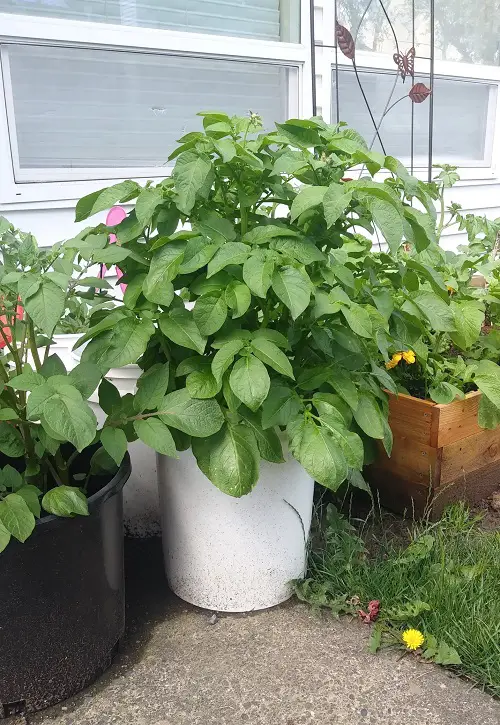
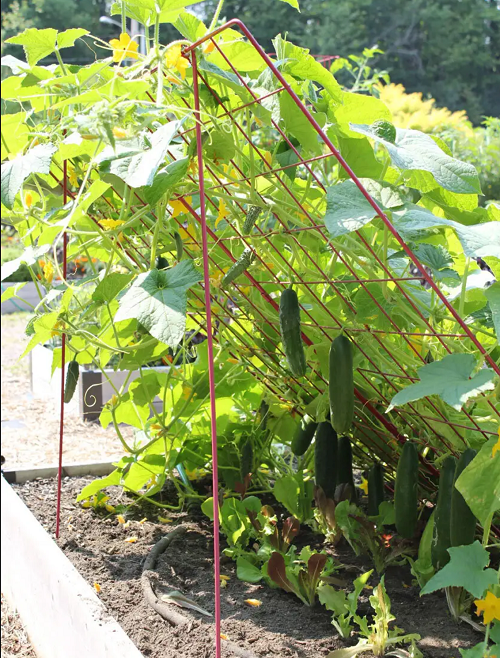
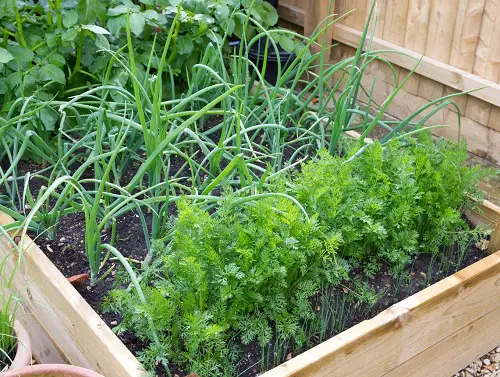


How Many Watermelon Seeds Will Kill a Human
🍉 Watermelon is a refreshing fruit that is enjoyed by many during hot summer days. It is sweet, juicy, and filled with essential nutrients that the body needs.